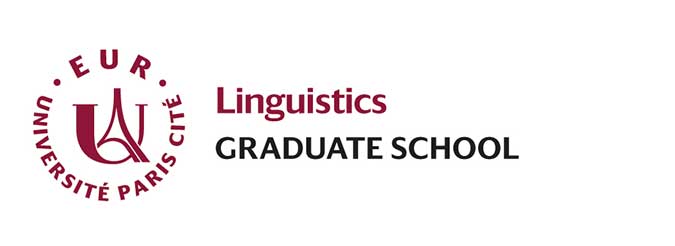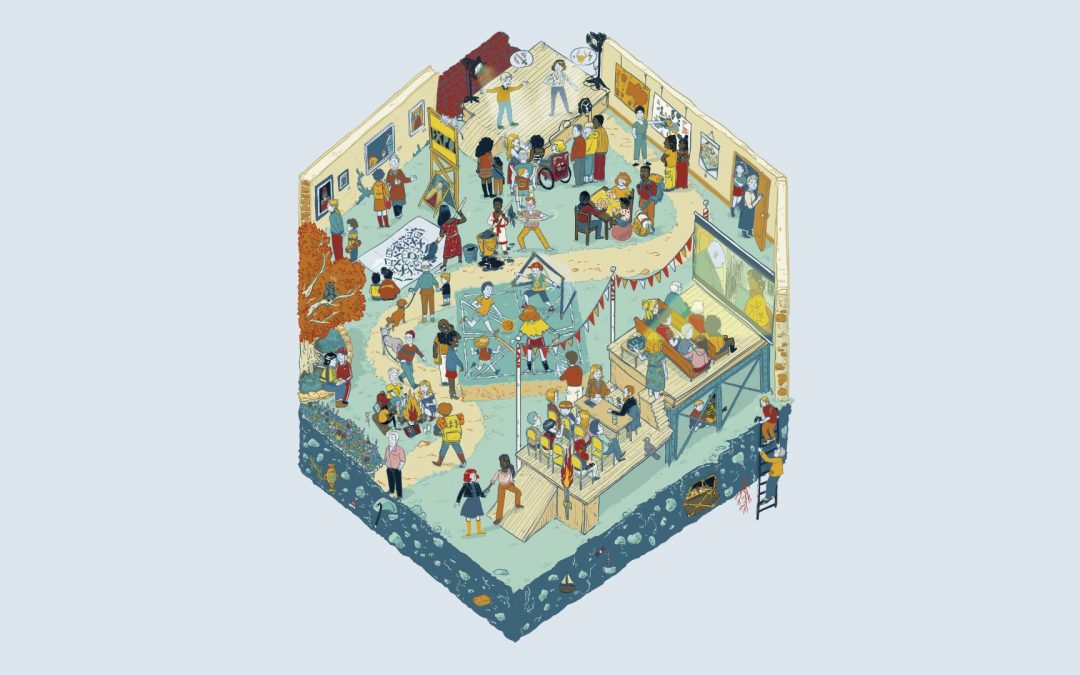Linguistics
The aim of the Graduate School of Linguistics is to offer a comprehensive curriculum integrating advanced study and research covering all areas of language science, in close connection with PhD programs. Research plays a central part in the program, with a multidisciplinary outlook.


Presentation
The Graduate School of Linguistics offers a two years’ Master’s degree that prepares students for doctoral research. Over the course of their training, students must design a scientific project with the faculty and researchers of the graduate program. Students work closely with an academic advisor and participate in university seminars and research projects. These experiences prepare students to carry out independent doctoral research, either in the affiliated doctoral program or elsewhere.
The Graduate School of Linguistics brings together 8 Master’s programs at Université Paris Cité, as well as a joint program at Université Sorbonne Nouvelle and Inalco. This consortium creates a unique combination of perspectives for the study of language with cutting-edge research units in computational, theoretical and historical linguistics, as well as in sociolinguistics and descriptive linguistics, with unique fieldwork expertise on more than 200 languages in the world.
Students can choose one of the following programs:
- Theoretical and experimental linguistics
- Computational linguistics
- Teaching of French as a foreign language
- Phonetics and Phonology
- Signs, Speech, Society
- English linguistics
- Languages for Specific Purposes, Corpora and Translation Studies
- East Asian Linguistics and Applied Linguistics
- Linguistic diversity: language, text, society
Website
www.paris-gsl.org
Contact
Anne ABEILLÉ
abeille@linguist.univ-paris-diderot.fr
Aimée LAHAUSSOIS
aimee.lahaussois@linguist.univ-paris-diderot.fr
Masters
A good command of English is required to be eligible for the Masters.
Languages, literatures and foreign and regional civilisations:
Research
The Graduate School Linguistics brings together 15 cutting-edge research units in all areas of linguistics (with access to state-of-the-art equipment such as EEG and eye-tracking, two phonetics laboratories, and a “baby lab” for research on new-borns and infants).
Laboratories
- CEPED – Centre Population et Développement (UMR 196)
- CERLIS – Centre de recherches sur les liens sociaux (UMR 8070)
- CERMI – Centre d’études et de recherches sur le monde iranien (UMR 8041)
- CLILLAC-ARP – Centre de Linguistique Inter-Langues, de Lexicologie, de Linguistique Anglaise et de Corpus-Atelier de Recherche sur la Parole
- CLESTHIA – Langage, systèmes, discours (EA 7345)
- CRLAO – Centre de recherches linguistiques sur l’Asie orientale (UMR 8563)
- EDA – Laboratoire Éducation, discours et apprentissages (EA 4071)
- HTL – Laboratoire Histoire des théories linguistiques (UMR 7597)
- INCC – Integrative Neuroscience & Cognition Center (UMR 8002)
- LACITO – Laboratoire Langues et civilisations à tradition orale (UMR 7107)
- LATTICE – Laboratoire Langues, textes, traitement informatiques, cognition (UMR 8096)
- LLACAN – Laboratoire Langage, Langues et Cultures d’Afrique (UMR 8135)
- LLF – Laboratoire de Linguistique formelle (UMR 7110)
- LPP – Laboratoire de phonétique et phonologie (UMR 7018)
- SEDYL – Laboratoire Structures et dynamique des langues (UMR 8202)
Executives
The Graduate School of Linguistics is led by two directors and an executive committee including the heads of each Master’s programme as well as international scientific advisors. The committee meets 4 times a year to select recipients of Master’s grants and other scholarships.
À lire aussi

Lancement du Club Innovateurs de l’université Paris Cité
Le 3 juillet 2024 s’est tenue la réunion de lancement du Club Innovateurs de l’université Paris Cité au Liberté Living Lab. Cette initiative réunit des chercheuses et des chercheurs employés ou hébergés par UPCité, ayant obtenu un concours...

Participez à la journée de Sensibilisation à la Science Ouverte de Circle U. !
Le 28 septembre prochain, l’équipe de Circle U., l'alliance européenne vous donne rendez-vous sur le campus des Grands Moulins pour participer à une journée de sensibilisation à la Science Ouverte. Au programme : ateliers sur les sciences participatives et la gestion...

Université Ouverte : découvrez le programme 2024-2025 !
Vous souhaitez apprendre une langue étrangère ? Vous initier à l’histoire de l’art ? Enrichir votre culture générale au travers de cours d’histoire ou de géopolitique ? Découvrir les mécanismes de notre cerveau ou encore vous initier à l'astrophysique ?...

Du 11 au 14 septembre 2024, les sciences humaines et sociales investissent la Cité
Autour de trois grandes thématiques en lien avec les valeurs des Jeux Olympiques et Paralympiques - jeux & créativité, rivalités, migration & racisme - venez découvrir ou re-découvrir les sciences humaines et sociales lors des Olympiades Humanités et sciences...
